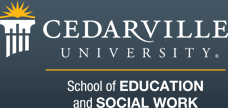Department/School of the Primary Author
Administration
Publication Date
12-13-2022
Document Type
Article
Keywords
Christian education, academic discipleship, perspectivalism, terminology, biblical integration, faith and learning
Abstract
Christian education is distinct, but school leaders are not always aware of, or may not agree on, what makes it so. The term, Christian education, is ubiquitous, but is not precise. Christian educators require clear, rich language that can be used to effectively communicate the specific norms, operations, and aims of their work. Through the use of John Frame’s triperspectival methodology, this article provides a focused epistemological, metaphysical, and axiological analysis of the unique nature of Christian education with the aim of producing clarifying terminology. Observing Christian education’s distinctives from multiple, specific perspectives allows educators to better define and describe those distinctives. In turn, these instructors will be better equipped to put them into practice. Educators can be well served by meaning-rich, portable terms that have been intentionally formulated from other commonly employed, but more narrowly understood, terms. To that end, this analysis presents Christian educators with precise, concise language that can assist in focusing vision, clarifying communication, and invigorating passion in the vocation of academic disciple-makers.
Volume
1
Issue
1
First Page
1
Last Page
16
DOI
10.15385/jei.2022.1.1.6
Recommended Citation
Hayes, Kelly N.
(2022)
"Academic Discipleship: A Perspectival Clarification of “Christian Education” for Teacher Leaders and Administrators,"
Education Insights: A Journal of Research, Theory, and Practice: Vol. 1, Article 6.
DOI: 10.15385/jei.2022.1.1.6
Available at:
https://digitalcommons.cedarville.edu/education_insights/vol1/iss1/6
Creative Commons License

This work is licensed under a Creative Commons Attribution-Noncommercial-No Derivative Works 4.0 License.
Copyright
© 2022 Kelly N. Hayes. All rights reserved.
Disclaimer
The CedarCommons repository provides a publication platform for fully open access journals, which means that all articles are available on the Internet to all users immediately upon publication. However, the opinions and sentiments expressed by the authors of articles published in our journals do not necessarily indicate the endorsement or reflect the views of Digital Services, the Centennial Library, or Cedarville University and its employees. The authors are solely responsible for the content of their work. Please address questions to the Digital Services staff.

